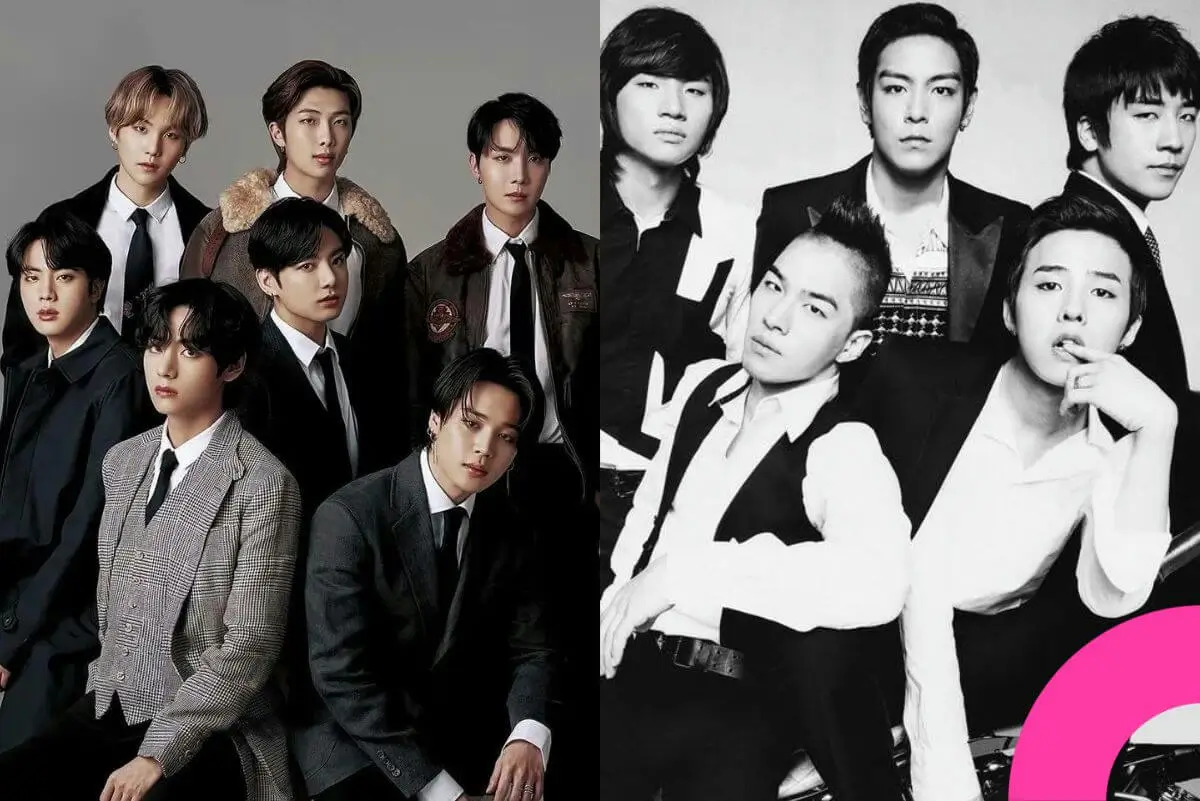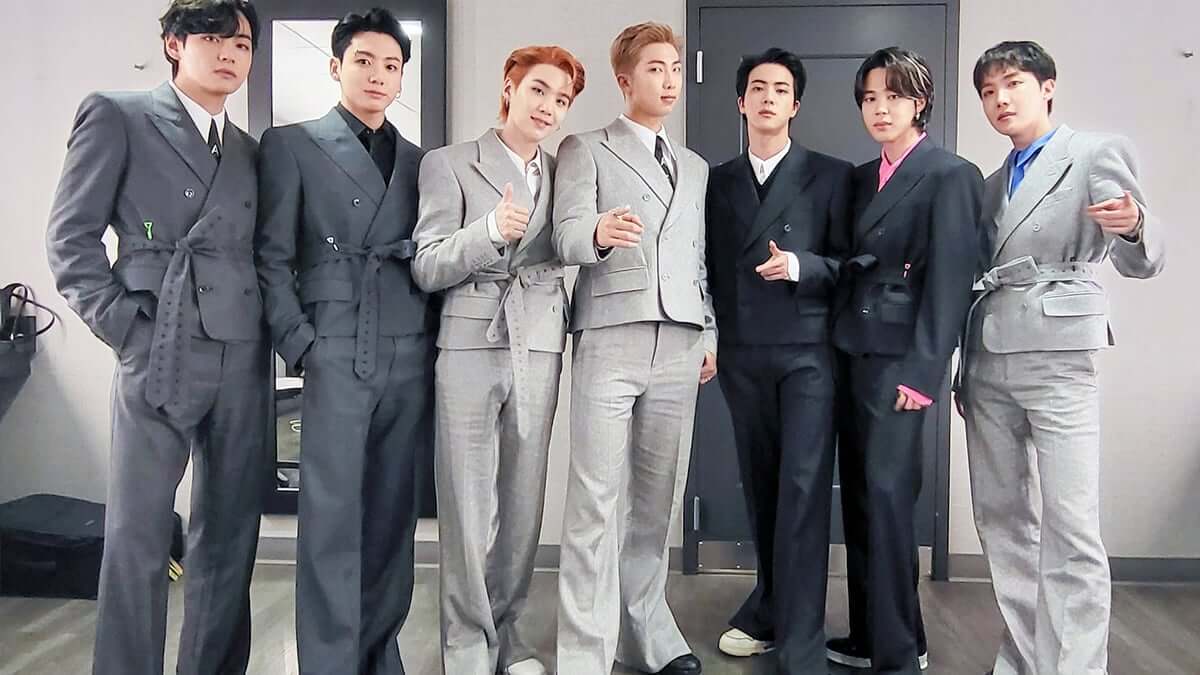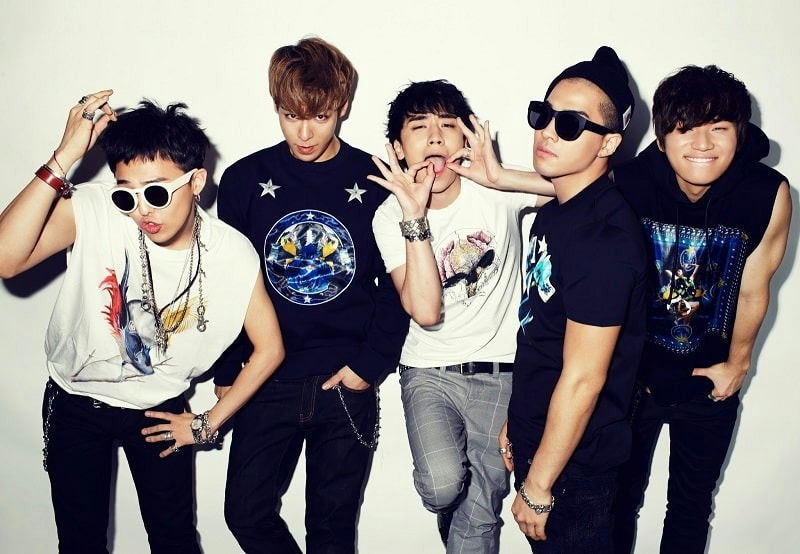
“Scandals cost BIGBANG too much.” This powerful statement captures one of the main reasons why BIGBANG—once hailed as the undisputed kings of K-pop failed to follow BTS into global superstardom.
BTS: From Underdogs to Global Superstars
When BTS debuted in 2013 under the then-obscure Big Hit Entertainment, few could have predicted their meteoric rise. Starting from the bottom, BTS faced immense challenges, competing with powerhouse boy groups like BIGBANG, EXO, and GOT7 from the “Big 3” agencies (YG, SM, and JYP). Their early style and hip-hop influences even drew criticism and accusations of mimicking BIGBANG and EXO.

The turning point came in 2016 with Spring Day and Fire, which cemented BTS’s popularity in Korea and Asia. But it was their Love Yourself series that launched them into the global spotlight. With themes of self-love, mental health, and social consciousness, BTS connected deeply with fans around the world.
BTS didn’t just rely on catchy tunes they built a fiercely loyal fandom, ARMY, and strategically expanded into Western markets. In 2020, their all-English single Dynamite made history as the first K-pop song to top the Billboard Hot 100. It earned a Grammy nomination and was followed by more hits like Butter, further solidifying their U.S. presence.
By 2023, BTS had:
- 6 No.1 songs on Billboard Hot 100
- 5 consecutive No.1 albums on Billboard 200
- Over 40 million albums sold globally
- Multiple Grammy nominations and American award show appearances
- The most Daesangs (grand prizes) in K-pop history (70+)

Beyond the numbers, BTS’s authenticity, creative control, and underdog story resonated with global audiences. They weren’t manufactured idols they were storytellers and artists who rose from a small company to build a global empire. BTS redefined what K-pop could be: inclusive, emotional, and artist-driven.
BIGBANG: Groundbreaking Icons Undone by Scandal
BIGBANG debuted in 2006 under YG Entertainment and revolutionized K-pop with hits like Lies and Haru Haru. Their edgy hip-hop sound, bold fashion, and raw talent set them apart. G-Dragon, in particular, stood out as a visionary blurring the lines between idol and artist, influencing both music and fashion.
BIGBANG’s comebacks were events. Their music shaped an entire era, and they were seen as pioneers of K-pop’s first global wave. With artistic freedom and genre-defying music, they brought individuality to an industry often criticized for uniformity.

However, their legacy was marred by a string of controversies legal troubles, drug-related issues, and high-profile personal scandals. These damaged public trust and international appeal, just as K-pop was beginning to gain traction worldwide.
As BTS rose with a clean image and empowering messaging, BIGBANG’s progress slowed. They became legends of the past while BTS became global ambassadors of the present.
Conclusion: Two Legends, One Global Empire
Both BIGBANG and BTS changed the K-pop landscape in monumental ways. BIGBANG built the foundation with innovation and attitude. But BTS used that foundation to construct a global empire one rooted in authenticity, strategic vision, and fan engagement.
BIGBANG may always be remembered as the rebellious icons of K-pop’s golden era, but it was BTS who truly went global, broke barriers, and redefined what it means to be a K-pop star in the modern world.









